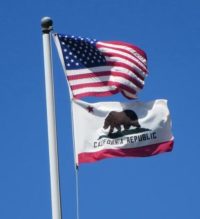There are a number of important changes in the law for 2013 affecting California employers. Part 1 discusses new laws for issues ranging from religious dress to commission payments. Part 2 covers issues ranging from whistleblower protection to information that must be provided to all new hires. The items discussed here are not a full list of all changes to the law this year, nor are the points referred to comprehensive of each law, given the nature of this summary. Unless otherwise noted, these laws take effect on January 1, 2013.
New Hire Information – AB 469 affects Labor Code § 2810.5 and requires employers to provide new hires with written information before work commences. Among other things, the employee must receive information specifying their rate of pay and how it is computed, the regular paydays, the legal name (and d.b.a. name) of the employer, the physical address of the employer’s main office or principal place of business, the employer’s telephone number and the contact information for their worker’s compensation carrier. When changes occur to this information, the employer must notify its employees in writing within seven calendar days. There are a few, limited exceptions to the requirement of providing this information.
Personnel Records – AB 2674 amends Labor Code § 1198.5 and expands an employee’s rights to inspect and copy his or her personnel file. At the employee’s request, the employer must provide the employee’s personnel file or make it available within 30 days, unless there is pending litigation related to those records. There are certain exceptions of records that do not need to be provided to the employee. Employers are required to maintain personnel records for at least three years after termination of employment. Employers need only respond to one request from a former employee per year.
Private Wage Agreements – AB 2103 pertains to Labor Code § 515 and abolishes the infrequent practice of an explicit mutual wage agreement where an employer and employee agree that the payment of a fixed salary to a non-exempt employee includes all regular and any overtime hours. As a result, now all non-exempt employees must be paid for all overtime hours worked, even if they previously agreed to accept a fixed salary.
Whistleblower Protection – AB 2492 expands and modifies Government Code §§ 12650 – 12654.5 relating to California’s False Claims Act. These changes increase the protections available to employees and contractors (among others) that act as whistleblowers. Penalties and recoveries include punitive damages, interest, double back pay, and reinstatement with the same seniority status. These provisions protect whistleblowers from retaliation and provide enhanced protection relating to when the employee engages in protected conduct.
This information is provided for informational purposes only and should not be construed as legal advice. It should not be acted upon without consulting a licensed California attorney about the facts, particular needs and questions of the person or entity considering these issues.
